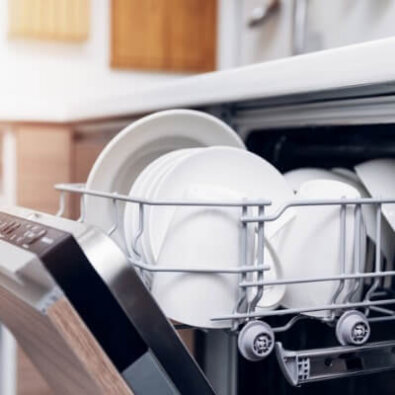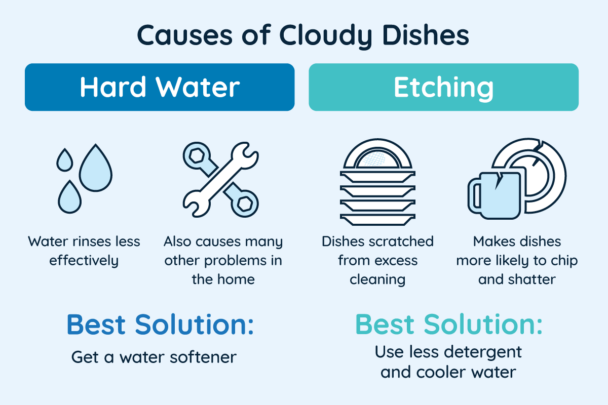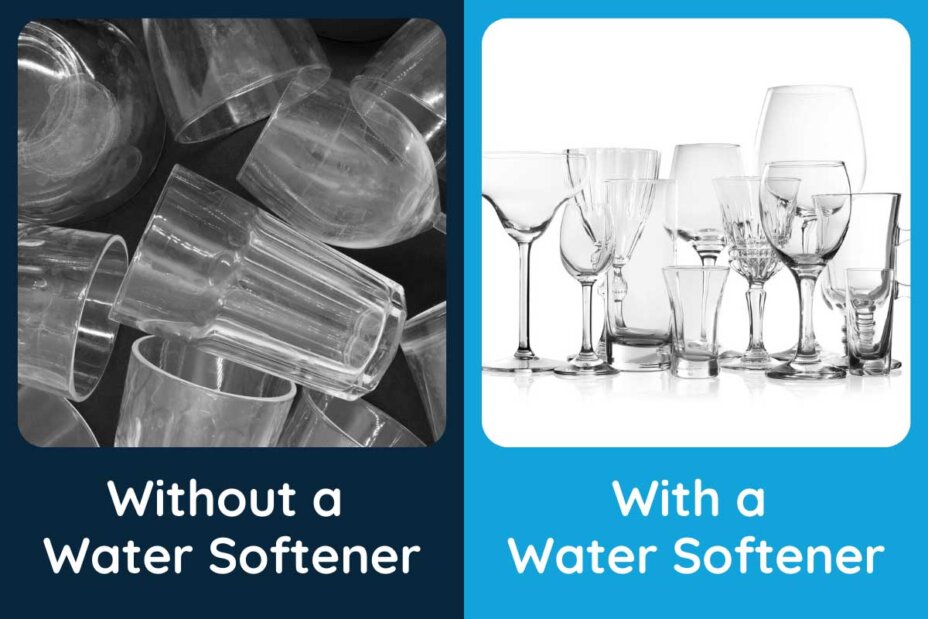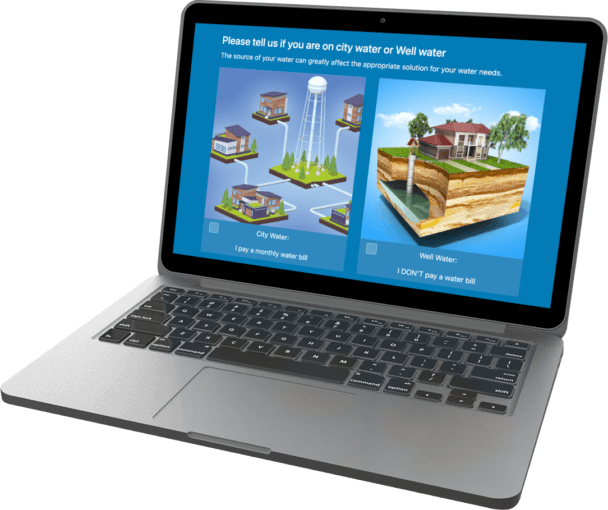Sure, you could keep trying to scrub those milky glasses and cloudy dishes harder with more soap and water. But we’re guessing that hasn’t helped all that much so far. Plus, it’s probably increasing your grocery bill as you go through all that dish soap.
Instead of continuing to struggle with the symptoms, why not fix the root of the problem? It’s easy to find out if your water is causing your cloudy dishes. And if it is, the solution is just as simple!
Read on to learn:
- How your water causes milky glasses and cloudy dishes
- Other issues this water problem can create
- The simple water treatment solution for this problem





